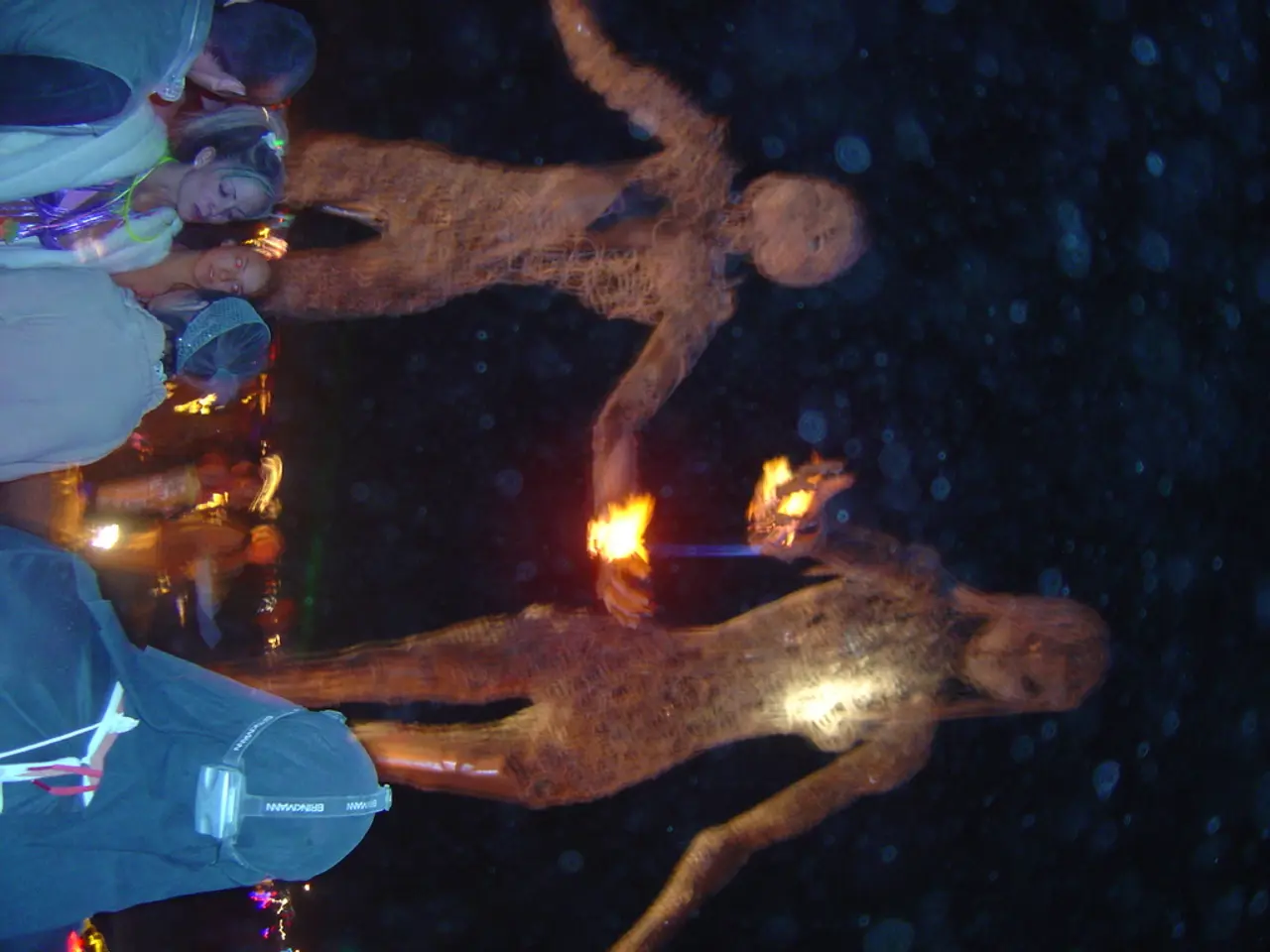Villagers Rally to Safeguard Their Homes from Raging Fires in Trancoso
Fire in Trancoso, Portugal, Reignites and Threatens Several Localities
A fire that broke out in the municipality of Trancoso, specifically in Frexes, on Saturday has reignited and is now threatening several localities in the region. The wildfire, which has spread significantly, is currently a major concern for authorities due to the ongoing risk posed by heatwave conditions.
The fire, initially under control, reignited this afternoon, prompting hundreds of firefighters to be mobilized to combat the blaze. These brave individuals are equipped with branches of vegetation, hoses, and buckets of water, working tirelessly to contain the fire.
The recent fire has affected at least 10 municipalities, including Sátão and Trancoso itself. Over 3,500 firefighters are actively engaged in battling the wildfire, with Portugal requesting assistance through the EU's civil protection mechanism. Four firefighting aircraft have been deployed until at least August 18, 2025.
Despite Portugal's strengthened fire prevention and response systems established after the deadly 2017 fires, the scale of this event continues to challenge resources. The impact of the fire has extended from Trancoso into surrounding municipalities, though specific village-level impacts beyond the initial report from Benvende village in Trancoso are not detailed.
The former mayor of Guarda died fighting the fires, highlighting the severity and human cost of this disaster. Containment efforts involve thousands of personnel actively managing the wildfires, though full containment status as of August 18 is not explicitly reported.
Authorities remain most concerned about further spread due to the heatwave and dry conditions. Residents of Trancoso, alongside GNR military personnel, are actively participating in the firefighting efforts. The overall situation remains critical, with the fire threatening several localities in Trancoso.
Amid the critical situation in Trancoso, Portugal, the wildfire’s expansion now impacts the domain of environmental-science, raising concerns about the effects on the local climate and weather patterns. The ongoing battle against the fire, necessitating thousands of firefighters and resources, might also affect future studies in the field of science, particularly climate-change research.








